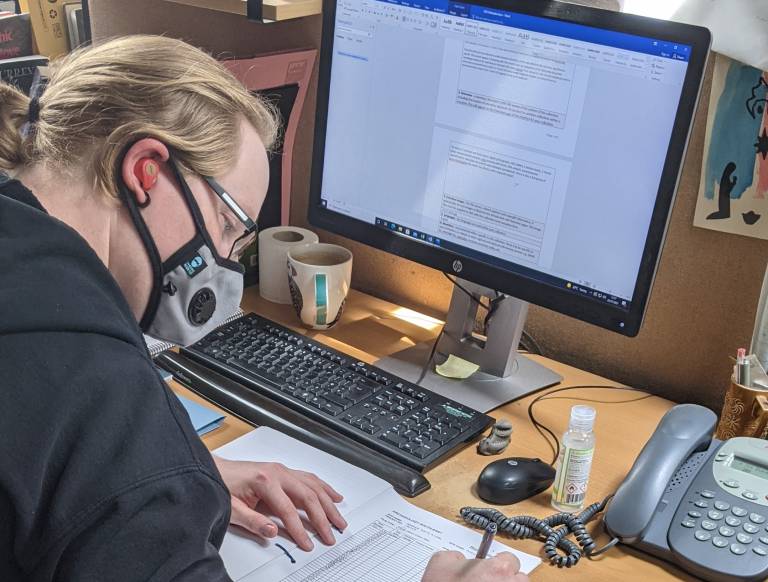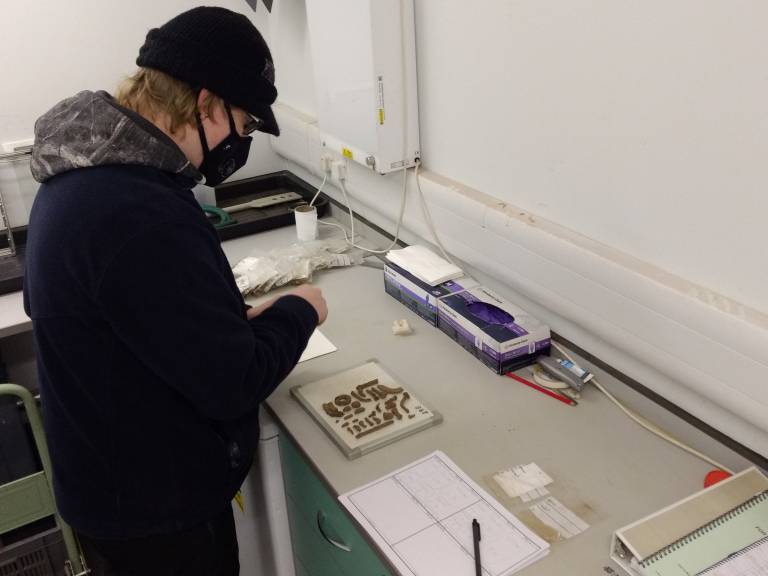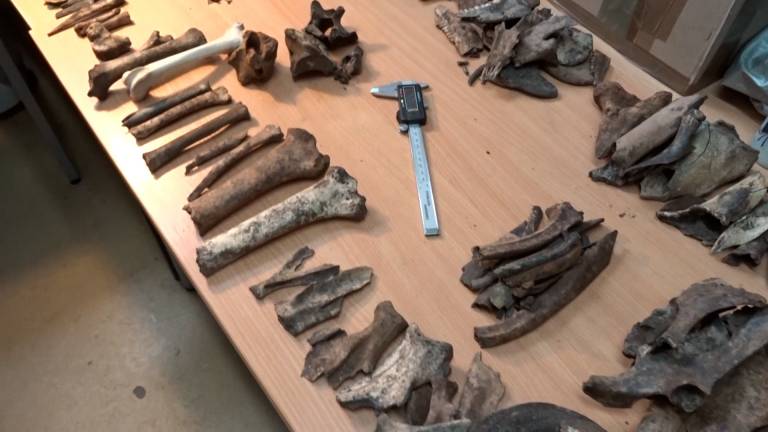IoA Placement 2021-21: Alex's time in post-ex
17 September 2021
Alex is back for one last blog about his placement year at ASE. This time he’s talking about the post-excavation part of his placement, and how he got the most out of it.

Introduction
Hi, I’m Alex, and I’m back again for one final blog post before I return to UCL for my fourth year. This time I’ll be giving my top tips for being a placement student as part of the post-excavation team, which mostly means working from the office.
Archaeology South-East’s main offices are located in Portslade, near Brighton. The office is where a lot of our archaeological finds get washed, dried and distributed to specialists for analysis, as well as where archaeologist write reports, analyse datasets, take photos, illustrate finds, and manage our projects (to name just a few!). You can find out more about what happens at ASE’s offices in this YouTube video.
I’ve spent around 3 months of my placement year sampling loads of different aspects of post-excavation archaeology at the office. Here’s how I got the most out of this experience.
Know your interests…
One of my biggest tips is to let your ASE colleagues know what parts of archaeology really grab your interest as soon as you can, so they can find opportunities for you to experience these.
Having expressed an interest in metal work, ASE arranged for me to learn from conservator, Alastair Threlfall, about metal artefact conservation, identifying how to clean the artefact depending on the metal type and the process of taking x-rays.

Preparing iron objects for x-ray at Fishbourne Roman Palace, under the tutelage of ASE conservator Alastair Threlfall. We spaced them out carefully on a case housing the sheet the objects will be x-rayed onto. The blank space at the far end of the board is where objects were previously x-rayed – this is covered by lead for subsequent x-rays to stop that side of the sheet becoming over exposed.
Not only did this allow me to understand the importance of the work conservators do, and the extra data that can be gleaned from an artefact if it’s given the proper care and attention, but also enabled me to explore my interests, making it fun and exciting!
…and get ready to be interested!
I arrived at ASE with a very narrow view of what interested me and what archaeological sub-disciplines existed. It turns out there’s a huge range of different specialisms within archaeology, and you may have never even heard of some of them! With a host of specialists working at ASE, there are plenty of opportunities to explore the archaeological discipline and each specialist is eager to share their knowledge and experience.
One of my first experiences in post-excavation was archiving, which ironically comes right at the end of the archaeological process. Learning about archiving within the framework of commercial archaeology allowed me to reassess the work that I had been doing in the field. I had a better understanding of what I could do to make the rest of the teams’ life so much easier throughout the post-excavation phase and into the archiving phase.
An unexpectedly enjoyable specialism for me was zooarchaeology. When I first sat down with zooarchaeologist Emily Johnson, I will admit that I didn’t think much about animal bones and what they can tell us about human interactions with animals. Bones were kind of cool, but what else was there? Emily’s crash course not only taught me how to start identifying animal bones in the field, but what information can be gleaned from these ancient animals and how their interpretation informs archaeological understanding. I can happily say that I now get excited whenever I find a piece of bone and immediately attempt to identify it!

In the midst of identifying and recording animal bones from medieval Barking Abbey! The white bone is from the zooarchaeological reference collection, which I'm using to help identify the browner archaeological bone.
In exploring these and other different specialisms I was able to connect the many dots of the archaeological process together, improving how I record artefacts when out in the field and in the office, and learning how I can get the most out of the data I’m recording.
Ask questions
And not just one or two, mind.
Ask every question you can conceivably think of!
Archaeologists have spent a lot of time researching their specific areas of interest and have an abundance of knowledge they are bursting to share with others. Archaeologists thoroughly enjoy it when they have an enthusiastic pupil and remember, there are no stupid questions, only stupid answers.
In a nutshell…
Try everything and ask all the questions! Know what you love, but keep an open mind throughout the process. This is such an amazing opportunity to sample so many archaeological disciplines - make the most of it!
Alex is writing a series of blog posts about his placement year experience with ASE. Find out more about Alex and his degree in this podcast episode, and check the UCL website for further information about the BA Archaeology with Placement Year.
 Close
Close

